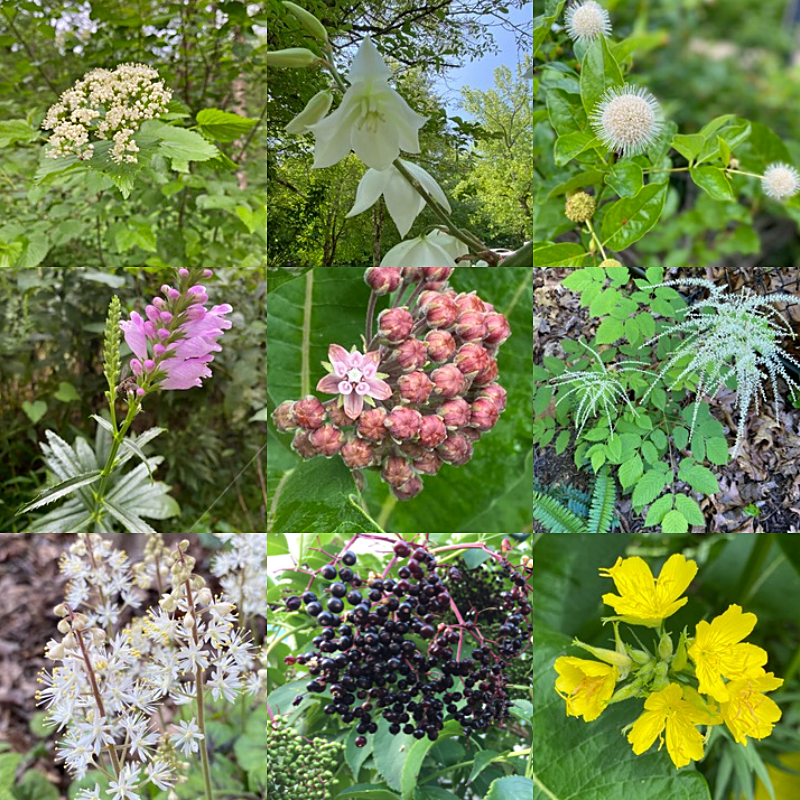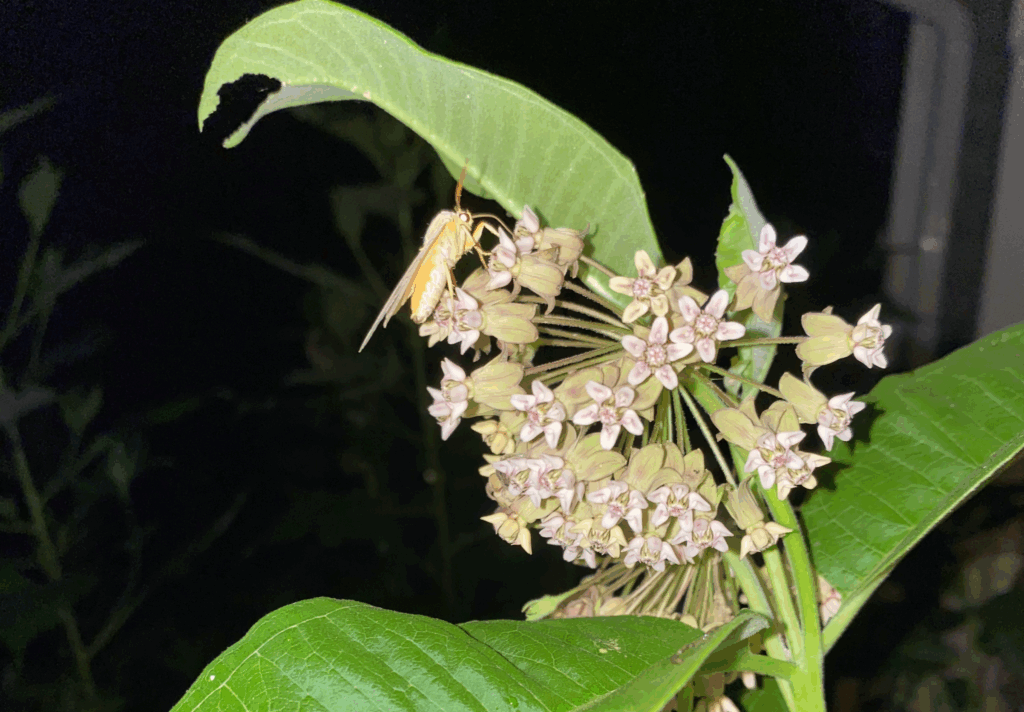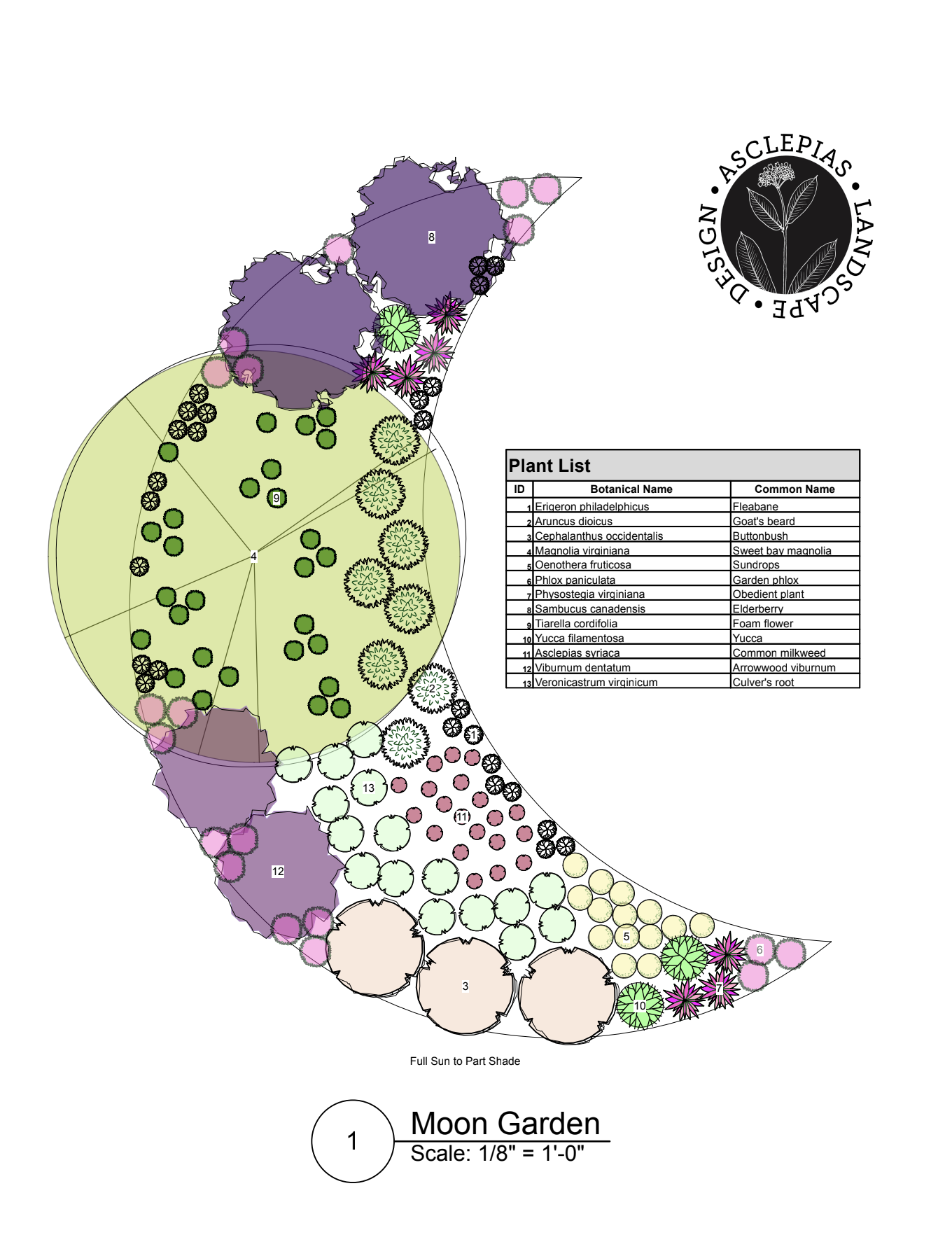Why Nighttime Pollinators Matter
Did you know pollinators are active after the sun goes down? The insects and animals that pollinate plants after dark play a crucial, yet often underappreciated role in our ecosystem.
In Northern Virginia, pollinators of the night include moths, beetles, some flies and — less common — bees. Sometimes bats are counted as pollinators, but bats in our area are mostly insectivores. Like their daytime counterparts, some of these pollinators only pollinate specific plants and some plants even develop a unique relationship with their nocturnal pollinators. One example is yucca and the yucca moth, which have a symbiotic relationship. Yucca is pollinated by moths from the genus Tegeticula and can’t reproduce without it.
Nocturnal pollinators are also as productive as their daytime counterparts. One study by the University of Arkansas showed nocturnal pollinators do as much pollinating of apple trees as non-native honeybees. Moths are able to pollinate flowers quickly and more efficiently than daytime pollinators because they have fewer hours of darkness to visit flowers and transfer pollen. Sadly, like all pollinators, their populations are declining.

The biggest threats are habitat loss, pesticides, light pollution, and climate change. You can help nocturnal pollinators by planting a moon garden, reducing the exterior lighting around your home, and leaving the leaves in your yard in the fall and winter. Planting a charming moon garden with fragrant, light-colored flowers such as sundrops, milkweed, yucca, and buttonbush will be alluring to nocturnal pollinators and even the daytime ones. You can look at the moon garden design for a plant list.
Lighting bugs are also pollinators. These insects are actually a type of beetle, and you can find them on many different flowers at night including swamp milkweed, wild bergamot, and cardinal flowers . In urban environments, light pollution makes it difficult for them to find each other for mating. Reducing the amount of exterior lighting around your property will help lightning bugs and animals navigate in the dark. Lastly, leaving the leaves in the fall will help butterflies and moths which overwinter as eggs or cocoons. Leaf blowing or mulching will damage them. Other insects also depend on leaf litter to protect them during the winter months.
One small action can make a big difference for the animals that live around us.
Sources:
Dark Sky International
Leave the Leaves: Winter Habitat Protection

